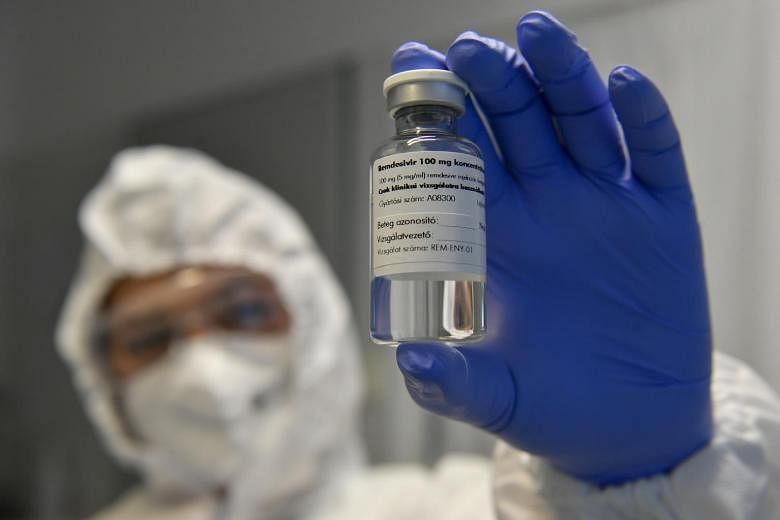SINGAPORE - The National Centre for Infectious Diseases (NCID) is actively reviewing the latest conflicting findings surrounding the antiviral drug remdesivir, though the drug remains a treatment option for Covid-19 patients in Singapore.
This comes after the World Health Organisation (WHO) published interim results of its Solidarity trial on Oct 15.
The results of WHO's trial indicate that remdesivir has little or no effect on how long Covid-19 patients stay in hospital stay or on their chances of survival.
NCID's Covid-19 therapeutic workgroup is hence actively reviewing the final report from the first United States National Institutes of Health adaptive Covid-19 treatment trial (ACTT1) that was released recently, along with a pre-print document from WHO's Solidarity trial.
ACTT1 studied the efficacy of remdesivir on Covid-19 patients. A pre-print document is a research paper that has yet to be peer-reviewed.
The WHO has also further assembled an international team, which includes representatives from Singapore, to further discuss the latest findings before issuing an update on treatment recommendation, NCID told The Straits Times on Tuesday (Oct 20).
Remdesivir was developed by US drugmaker Gilead Sciences. It received conditional approval by the Singapore's Health Sciences Authority to be used outside of clinical trials in June.
Meanwhile, there is no change to the current treatment approach in Singapore.
Infectious disease specialists can administer remdesivir to patients with low oxygen saturation levels, less than or equal to 94 per cent, or those who might require supplemental oxygen or more intensive breathing support.
"It is important to reiterate that this is a new disease and continuous research and clinical trials are ongoing to bring the best treatment options and strategies to patients. Treatment guideline is a living document that requires update as and when new knowledge is made available," NCID said.
Continuous emphasis must be placed on early case detection, close monitoring of disease progression and early intervention, NCID stressed.
Companies such as Gilead have been racing to find a treatment for Covid-19. Some 1.1 million people have died and 41 million have been reported infected by the coronavirus, which has thrown the global economy into disarray.
Remdesivir was among the first drugs to be used in the treatment of Covid-19. It was also one of the drugs recently used to treat US President Donald Trump after he tested positive for Covid-19. It has been shown in previous studies to have cut recovery time.
Gilead raised concerns over WHO's data, saying that the data appeared inconsistent, the findings were premature and that other studies had validated the drug's benefits.
WHO has since responded to defend the trial's data.
"It's a reliable result. Don't let anybody tell you otherwise, because they'll try to," Dr Richard Peto, an independent statistician hired by the WHO to evaluate its Solidarity trial, told reporters.
He added that any benefit remdesivir has may be due to chance.
LISTEN TO HEALTH CHECK PODCAST HERE.












